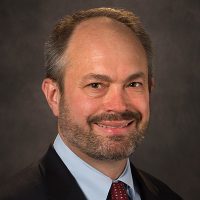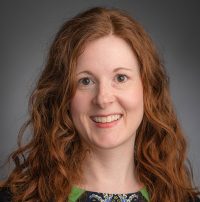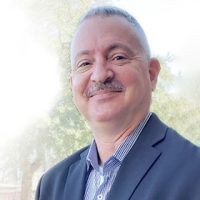Expert Panel:

Dr. William Wierda, President & CEO, CLL Global Research Foundation

Dr. Erin Parry, Investigator, Hematologic Neoplasia at Dana-Farber Cancer Institute

Jeff Folloder, Moderator and CLL patient advocate
Our recent CLL Global Research Foundation virtual town hall featured CLL Global President, Dr. William Wierda, and Dr. Erin Parry, an Investigator of Hematologic Neoplasia at Dana-Farber Cancer Institute. CLL patient advocate Jeff Folloder moderated the event. Watch the full webinar.
Transcript
Jeff Folloder:
So, Kevin would like to know – how will treatments evolve over the next 10 years? Are there signs that AI could speed treatment development? I’m asking both of you to use your crystal ball.
Dr. Erin Parry:
I think one think one thing that has come up increasingly as all these advancing technologies exist with all the different sequencing platforms is we’re in an era of big data. With big data, I think we do need ways of analyzing that big data. Some of that is through computational experts, and maybe that AI has roles at picking up different patterns.
I haven’t seen AI necessarily directly make an impact on research, but it’ll be interesting to see how things evolve, I think, with us getting increasing amounts of data. Certainly, computational modeling and different things will be important, as we try to look for even more things in the future.
Jeff Folloder:
More data, more power takes more stuff to get it done, and that’s the foundation of research. I’d like to thank all of you that submitted your questions. We’re heading towards wrapping up this town hall.
You two are truly medical experts. I’d like to give you a moment to let us know what’s on your mind. Dr. Parry, you’ve explained where we stand with CLL research. How do you feel about how it’s evolving? What do you think we’re going to see as your patients?
Dr. Erin Parry:
I think that as far as things that I’m excited to see in the next five years that, I think, from research that’s going on, I think we’re going to learn a lot more about the immune micro-environment and how we can maybe better target the immune system. I think a lot of that is from these novel technologies that are allowing us to better understand things. So, I’m excited to see what that brings and hope that that will bring new avenues for treatment.
Jeff Folloder:
Fantastic. Dr. Wierda, I know that we need about another hour—and-a-half to get out all the information to everyone. What’s on your mind?
Dr. Wierda:
Well, I think more and more about cure, and I spend a lot of my time thinking about how do we cure patients with CLL? We are on the brink of cure for most patients, I think. So, to Erin’s point, I think we need to work a little bit more diligently on understanding the immune system and how to optimize our immune-based treatments and with that, also, will come strategies to restore the immune system for our patients so that they’re not at high risk for second cancers and for infections.
So, we’re going to hear a lot about trials’ readout in the next three to five years of combination targeted therapies. I think we have a dedicated program at [MD] Anderson to look at immune restorative strategies and understanding the immune system.
I spend a lot of time now focused on that aspect and thinking about ways that we can eliminate CLL for good.

